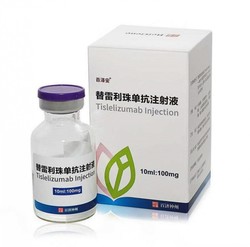The U.S. FDA put off a decision on whether to approve tislelizumab, anti-PD-1 immunotherapy developed by BeiGene and Novartis, due to Covid-19-related travel restrictions.
BeiGene, the Chinese pharmaceutical firm, said on Thursday that the FDA deferred a decision on approval for tislelizumab as a second-line treatment for unresectable or metastatic esophageal squamous cell carcinoma (ESCC).

The company said the U.S. regulator could not conduct inspections in China due to Covid-19-related travel restrictions and delayed a decision on the drug approval until inspections were complete.
“In the letter, the FDA cited only travel restrictions and the inability to complete inspections as the reason for the deferral,” BeiGene said. “The application remains under review.”
The company also said the FDA did not give a new decision date because they kept monitoring the public health situation and travel restrictions.
BeiGene and Novartis will continue actively working with the FDA to support scheduling the required inspections “as soon as possible,” it added.
Tislelizumab is an anti-PD-1 monoclonal antibody developed by BeiGene for the first time.
BeiGene gave Novartis the right to develop, manufacture, and commercialize tislelizumab in North America, Europe, and Japan.
BeiGene chose ESCC as the first indication of tislelizumab to enter the U.S. market.
ESCC is the most common esophageal cancer in Africa and Asia, including China and Japan. For example, over 90 percent of esophageal cancer in Korea is ESCC.
ESCC is often found in an advanced or metastatic state at the initial diagnosis, causing a poor prognosis.
About 20 percent of ESCC patients survive for at least five years, but the survival rate plummets to 5.2 percent among those with metastatic ESCC.
In advanced or metastatic ESCC patients, tislelizumab lowered the risk of death by 30 percent compared to conventional chemotherapy.
The phase 3 RATIONALE 302 study -- in 512 patients with unresectable, recurrent, locally advanced, or metastatic ESCC who had previously received systemic therapy across Europe, the U.S., and Asia -- showed that tislelizumab extended the median overall survival (OS) by 2.3 months, compared to chemotherapy.
Based on RATIONAL 302 results and data of 1,972 patients treated with tislelizumab monotherapy in seven trials, BeiGene applied to the FDA for marketing approval for tislelizumab in September 2021.
The company had hoped to obtain the permit on Tuesday, but the FDA delayed the decision indefinitely. The delay will likely disrupt BeiGene’s plan to enter the U.S. market.

